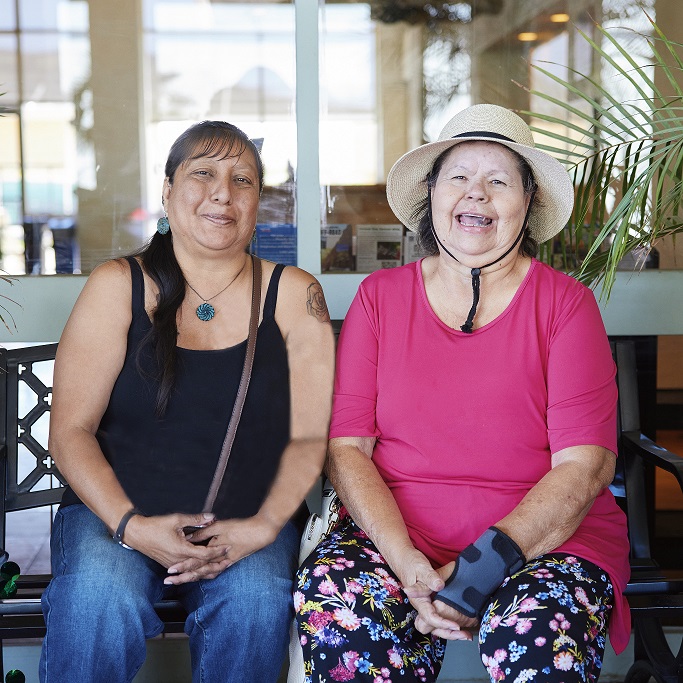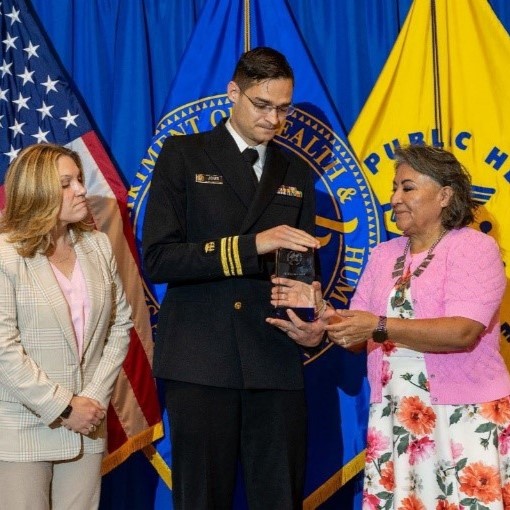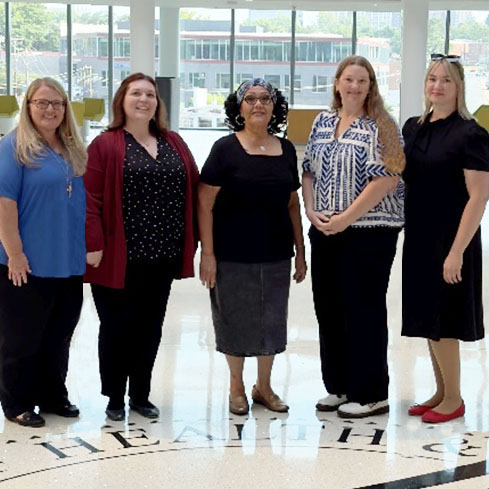Other Resources

These carefully selected education and caregiver support resources, trusted tools, and information from IHS and other reputable organizations can help providers enhance their knowledge as they strive to provide the best possible care. Additional programs and resources are available to enhance geriatric care and support for health care providers serving American Indian and Alaska Native communities.
These resources provide information on:
- Various programs to help improve care for aging populations
- Mentorship
- Professional development opportunities
- Caregiver support

Report: Addressing Dementia Caregiving Service and Support Needs Across the Indian Health System
Addressing Dementia Caregiving Service and Support Needs Across the Indian Health System. [PDF - 718 KB] is a report developed through a collaboration between the IHS Elder Care Team, the Northwest Portland Area Indian Health Board, and Cardea. This report includes findings on dementia caregiving solutions in American Indian and Alaska Native (AI/AN) communities from a literature review, key informant interviews, and a Workgroup of experts, caregivers, and community representatives.
VA Rural Interdisciplinary Team Training and Dementia Training for Rural Tribal and IHS Clinics
The VA Office of Rural Health offers two on-site training programs for rural, tribal, and IHS clinics serving older Native veterans: Rural Interdisciplinary Team Training (RITT) and Addressing Behavioral Challenges with Dementia (ABCD). A full-day training is accredited for 6.5 CME/CEU hours, a half day for 3.75 hours.
View more information on training and resources by visiting the VA's GRECC Education and Educational Products – Geriatric Research Education and Clinical Center (GRECC)
For more information, email Josea Kramer, PhD or the IHS Alzheimer’s Program.
Indian Health Geriatric Scholars

The Indian Health Geriatric Scholars (GeriScholars) pilot program was created with help from the Veteran Affairs Office of Rural Health. It is based on the successful VA Geriatric Scholars Program, which has improved geriatric care in primary care over the past decade.
The GeriScholars pilot offers:
- An intensive learning track for IHS, tribal, and urban Indian health clinicians
- Mentored support for local projects
- Advanced learning opportunities
Visit the GeriScholars Program page for more information.


Indian Health Geriatric Nurse Fellowship Program
The IHS Division of Nursing Services (DNS) and the Alzheimer's Program started the Indian Health Geriatric Nurse Fellowship Program pilot in 2024. This pilot offers a 7-month professional development program for nurses in IHS, tribal, and urban Indian health organizations.
The program includes:
- Virtual classes combined with real-world experience
- Mentored support for local projects
- Access to funding support for advanced learning or relevant certifications
The program goal is to give nurses the knowledge and skills to become leaders in providing holistic, evidence-based care for aging tribal populations.
Visit the Indian Health Geriatric Nurse Fellowship page for more information.
Caregivers are an important part of the care team for people living with Alzheimer’s and other dementias. As healthcare providers, it’s important that we work to ensure that caregivers and families have the support and resources they need to manage the challenges that come with dementia care.
These resources are designed to help caregivers:
- Build important skills
- Provide better care and support to their loved one
- Maintain their own well-being
RESOURCES FOR FAMILIES
Tips for Caregivers and Families of People With Dementia, a guide from Alzheimers.gov, offers tips on everyday care, handling changes in communication and behavior, helping people with dementia stay healthy and active, ensuring home safety, self-care for caregivers, and planning for the future.
Caregiving Resources from the the Centers for Disease Control and Prevention (CDC) offer a variety of helpful resources for caregiving, self-care, and short-term and long-term planning that can help ease caregiving for someone with Alzheimer's or another dementia.
The Alzheimer's Association's Caregiver Resources support caregivers by offering resources, education, and tools to help them care for loved ones with Alzheimer's or dementia. The organization advocates for supportive policies, provides training for health care professionals, promotes strategies to improve caregiver well-being, and offers support groups and community programs to help caregivers manage responsibilities.
The International Association for Indigenous Aging Caregiving Initiative (IA2) supports caregivers by providing resources and education specifically for Indigenous elders and their families. Through its Caregiving Initiative, IA² works to improve care quality and protect the rights of Indigenous elders, helping caregivers provide the best support for their loved ones.

RESOURCES FOR PROVIDERS
Addressing Dementia Caregiving Service and Support Needs Across the Indian Health System [PDF - 731 KB] is a report developed in collaboration with the IHS Elder Care Team, the Northwest Portland Area Indian Health Board, and Cardea. This report presents findings on dementia caregiving solutions in American Indian and Alaska Native (AI/AN) communities, based on a:
- literature review,
- key informant interviews, and a
- Workgroup of experts, caregivers, and community representatives.
Behavioral Risk Factor Surveillance System (BRFSS) is a major U.S.health survey that uses phone calls to collect state data on people's health habits, chronic conditions, and preventive services. Managed by the CDC and conducted by state health departments, BRFSS data is used to create easy-to-understand infographics about Alzheimer’s disease and other dementias, as well as caregivers of people living with these conditions.
Dementia Caregiving as a Public Health Strategy, is a brief from the CDC and Alzheimer's Association that explains the challenges of caregiving, provides a plan for action, and urges public health leaders to work with others to develop a complete approach.
Health Care Worker Dementia Training Modules from the Health Resources and Services Administration (HRSA) are designed to help educators teach health care workers about dementia, with a focus on Alzheimer's Disease. The training includes 37 modules in four series, covering topics like supporting caregivers and how providers can address caregiver needs, and is intended for health professions faculty, students, primary care practitioners, geriatrics care team members, and direct service workers.
The Healthy Brain Initiative: Roadmap for American Indian and Alaska Native Peoples provides actionable steps for strengthening public health responses to Alzheimer's and other dementias in American Indian and Alaska Native communities. It promotes health equity by using a strength-based approach that honors diverse American Indian and Alaska Native cultures and incorporates the indigenous determinants of health.
RAISE Family Caregivers Act Advisory Council, established under the RAISE Family Caregivers Act, supports caregivers by advising the development of the National Strategy to Support Family Caregivers. This strategy outlines federal actions and recommendations to ensure caregivers have the resources they need for their health, well-being, and financial security. The Council's work is backed by the RAISE Act Family Caregiver Resource and Dissemination Center, which helps develop resources and policies to support caregivers at all levels.


